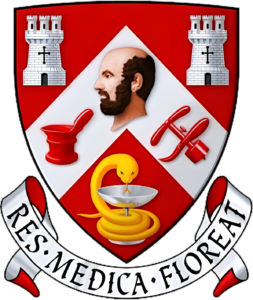 James Ramsay was born in Fraserburgh, a son of a ship’s carpenter. He attended Fraserburgh Grammar School and was apprenticed to a local surgeon. He studied at King’s College, awarded MA on 9 April 1753 and had thereafter further training as a doctor.
James Ramsay was born in Fraserburgh, a son of a ship’s carpenter. He attended Fraserburgh Grammar School and was apprenticed to a local surgeon. He studied at King’s College, awarded MA on 9 April 1753 and had thereafter further training as a doctor.
In June 1757, he joined the Navy under the command of Capt Charles Middleton. Ramsay’s vessel intercepted the British slave ship Swift on 27 November 1759 where Ramsay saw the appalling conditions on board.
After leaving the Navy, he was ordained into the Anglican church and chose to work in Saint Kitts. He was appointed to St John’s, Capisterre (1762), and to Christ Church, Nicola Town (1763), St Kitts. As surgeon to several plantations, he saw the cruelty directed towards slaves. Ramsay’s interest in the welfare of slaves threatened the prosperity of influential planters and local government officials and he became the target of abuse and sought help from Britain.
Forced back to the UK, in 1777, he adopted and paid for the education of his nephew (later Bishop of Edinburgh). Ramsay was welcomed into the family of Sir Charles Middleton who joined him is supporting slaves.
Re-joining the Navy, he saw action against the French off St Lucia (December 1778) and off Grenada and St Kitts (July 1779). As Middleton’s secretary, he was involved in the reorganization of the Navy Board, and in the settlement of Australia, selecting the surgeons of the First Fleet (1787).
His work influenced Prime Minister Pitt (the Younger) and William Wilberforce, providing much of the evidence Wilberforce used in his speech to the first Commons debate on abolition of slavery (May 1789). He was viciously attacked by his opponents and died of a gastric haemorrhage in July 1789, years before the Slave Trade Act of 1807.
At a time when many institutions are challenged by their past with respect to their role in the history of slavery, Aberdeen and the University should celebrate this individual who committed to the abolition of slavery in the face of personal sacrifice, and provided collateral for Wilberforce.
Writing
- Sea Sermons for the Royal Navy (1781)
- Essay on the Treatment and Conversion of African Slaves in the British Sugar Colonies (1784)
- Strong opposition to this was countered by his Reply to Personal Invectives (1785)
- An Inquiry into the Effects of Putting a Stop to the African Slave Trade (1784)
Biography: https://spartacus-educational.com/REramsay.htm
Oxford Dictionary of National Biography: https://doi.org/10.1093/ref:odnb/23086
image by Carl Fredrik von Breda; oil on canvas, 1789; NPG 2559 © National Portrait Gallery, London
Biography prepared from the nomination made by Dr D Thomas to the University of Aberdeen 525 Alumni project.


